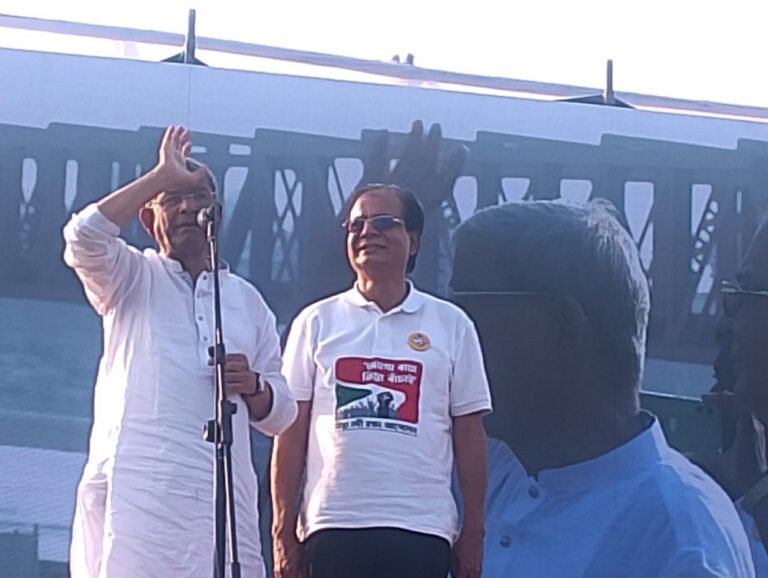BNP Secretary General Mirza Fakhrul Islam Alamgir has firmly stated that India must ensure Bangladesh receives its fair share of water from the Teesta River for a strong and friendly relationship between the two countries.
Addressing a large rally on the banks of the Teesta River in Kaunia upazila, Rangpur, on February 17, Fakhrul emphasized that Bangladesh’s interim government must adopt a more assertive stance to secure the country’s rightful share of Teesta water. He criticized the previous Awami League government for failing to raise the issue effectively with India, blaming their lack of action for the ongoing water dispute.
Fakhrul also accused former Prime Minister Sheikh Hasina of neglecting the needs of the people living along the riverbanks for the past 15 years, describing the situation as a “life and death struggle” for those in the region. He claimed that Hasina had neglected Bangladesh’s interests by failing to secure the Teesta water share while fostering closer ties with India.
“The Teesta River is critical for our survival. We will fight for our rightful share through a sustained movement,” Fakhrul said, adding that Hasina had “sold Bangladesh to India” without ensuring the welfare of the nation or securing the Teesta’s water share.
The BNP leader also criticized India for damaging at least 54 common rivers in the region and blamed India for the ongoing water crisis. He reflected on the 36-day movement that led to Sheikh Hasina’s ousting, pointing out that while Hasina was given “royal hospitality” in India, she has allegedly plotted against Bangladesh from abroad.
The rally is part of BNP’s two-day program, which began on February 17, to demand a fair share of Teesta water and the implementation of the Teesta Mega Project, a proposed solution to the region’s water crisis. Fakhrul delivered the inaugural speech on the first day, with BNP Acting Chairman Tarique Rahman set to address the rally virtually from London on February 18. Rahman is expected to stress the urgency of resolving the water dispute and the importance of the mega project for regional development.
Once considered the lifeline of the region, the Teesta River has now become a source of hardship. During the rainy season, unannounced water releases by India flood both riverbanks, endangering lives. In contrast, during the dry season, the river’s flow often drops to near zero, turning vast areas of land into barren, uncultivable terrain, exacerbating the challenges for local communities.



